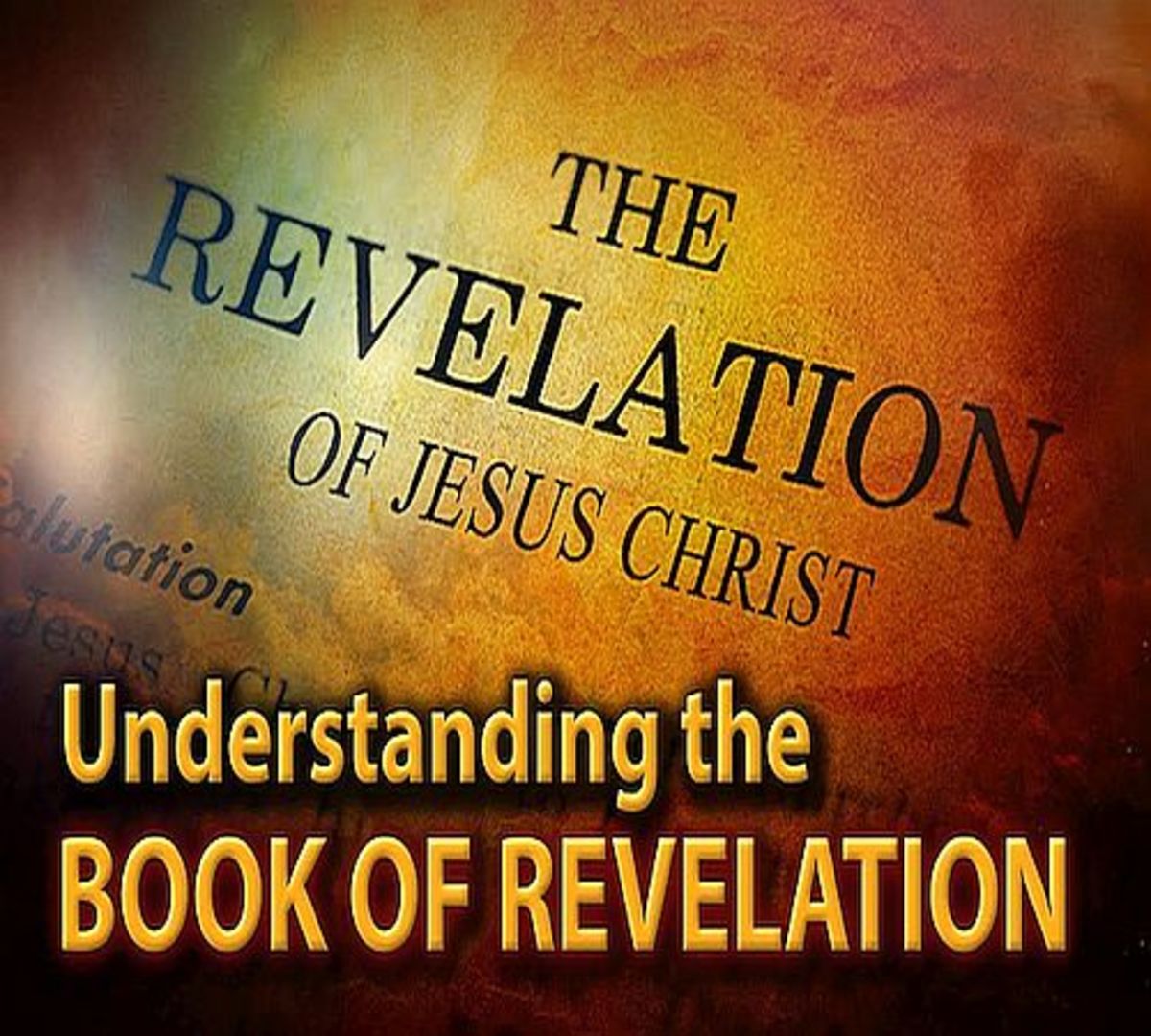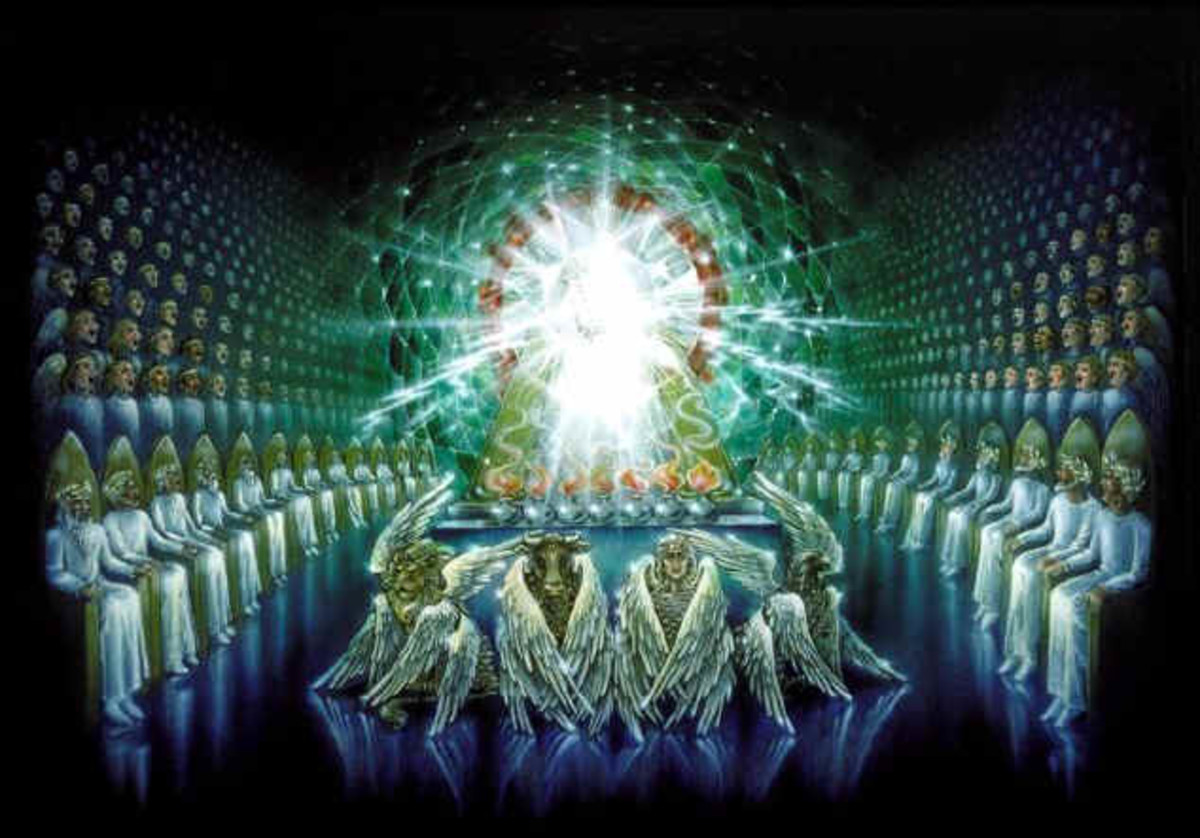The Book of Revelation: Prophetic Visions - or the Paranoid Ravings of a Mad Man?

The Final Call
“Behold, I am coming soon, to repay everyone for what he has done, I am the Alpha and the Omega, the first, and the last, the beginning and the end. (Revelation 22:12)
These mesmerizing words of warning are more than two thousand years old but when read or heard, they still cause fear and trembling in the minds of 21st century man. They are the words found in the last, and for many - the most dangerous book of the Bible – the bloody, end-time Apocalypse known as “The Revelation”.
In a series of strange and powerful visions the book of Revelation foretells the story of God’s final judgment on humanity and the terrible annihilation of all life on earth. Its most dreadful symbols are described as the Four Horsemen of the Apocalypse, representing Pestilence, War, Famine, and Death. Millions of believers are confident that the book of Revelation is the inspired word of God, given to His saint as a warning to mankind to get their spiritual act together or suffer the ultimate consequences. While non believers think the book is nothing more than the paranoid ravings of mad men seeking revenge against their oppressors who in the absence of military power, had as their only true defense visions and hopes for a spiritual condemnation on their enemies. Visions brought on by hatred, fear, and the need for revenge..
The book of Revelation is a series of letters written to seven churches during the first century of the Common Era. It contains dark, nightmarish images predicting a bloody, merciless end of the world. In 1993 the tragic confrontation between the FBI and the Branch Davidians at Waco, Texas stunned the United States and proved that despite its ancient origins the book of Revelation is still a powerful force today. So what is the true origin of this book that holds so many modern minds in its ancient powerful grip, and why do millions still believe that its terrifying visions might someday come true? And finally, who was the author, or authors of this apocalyptic writing and what were their mind sets?
Theologians gives the authorship of this remarkable book to one man who is just as much a mystery as the book itself. The writer is recognized as a visionary known only as John. Traditional thinking suggests that this was John the Apostle, the same John who wrote the Gospel of John. However, most biblical scholars today, after comparing the difference in theology and writing styles between the book of John and the book of Revelation, have concluded that the Book of Revelation was written by another John – but who? If not John the Apostle then perhaps it was St. John the Divine? Careful analysis of this theory and literary style has convinced other biblical scholars that it was neither John the Baptist or St. John the Divine. They linked the content of Revelation to the contents of the Book of Daniel which was written over two hundred years earlier and have concluded that Revelation may have been written by Daniel and handed down through time. Another possible author could have been one of the rebellious leaders of Judea, while fleeing Roman persecution visited John on the Island of Patmos to get John’s support on his visions for revenge against the Romans. John then blessed the visions and they were published as a series of letters as warnings to the seven churches perhaps persuading them to take a stand against Roman persecution or suffer the ultimate consequences. Other biblical scholars think the original author was an ancient Persian Prophet named Zoroaster (http://en.wikipedia.org/wiki/Zoroaster)who has intrigued historians for decades. Centuries before the history of Jews and Christians, even before the time of Daniel, Zoroaster predicted final battles between good and evil ending in a final judgment on the earth which was to be harsh and bloody - similar to the book of Revelation.
Is the book of Revelation a timeless moral drama written by a mad man or is it truly a ghastly blueprint depicting the end of time? Why do these men predict a bloody, violent end when the teaching on the second coming of Christ suggests a peaceful return? Could it be that the second coming is an aftermath of the events described in the book of Revelation?
Despite the originators of the book of Revelation or their mind set, it has been accepted by biblical scholars as well as humanity that God was, and is, the ultimate source of all that is in the book. Whether the visions originated centuries before the birth of John or was in fact, given to John on the Island of Patmos is irrelevant. Biblical scholars of Christian doctrine all agree that the inspiration originated from God, and was given to Jesus Christ, who then delivered it by "His angel" to John the Apostle who was being held as a prisoner by the Romans on The Island of Patmos some time after 90 AD. John then addressed the writings to The Seven Churches of Asia, as instructed by God in Revelation 1:11.
Whatever one’s conclusion regarding its origin, or its author, the ancient visions of the book of Revelation lives on and has been accepted as the blue print for mankind’s final stand on earth. The book is a moving plea for compassion and love - and a bitter cry for vengeance and annihilation. After more than two thousand years there are no signs that humanity will ever lose its fascination with the Bible’s final book – or that we will ever know who truly wrote this book. Nor will we ever be able to unravel its apocalyptic messages. However, even in the absence of hard core evidence, mature Christians have no doubt about the books authenticity, or its author. Their source of confidence is found in the book of 2 Corinthians 5:7 which suggests that…………
“We walk by Faith – and not by sight”
Peace be with you!








